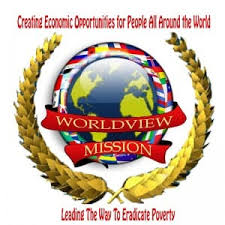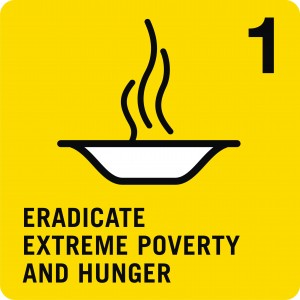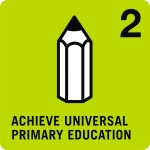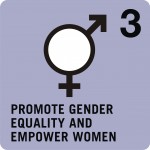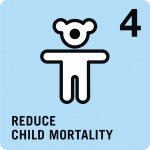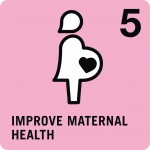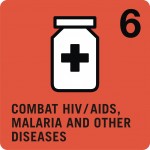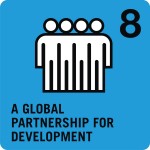
NGO/DPI EXECUTIVE COMMITTEE – CALL FOR NOMINATIONS
DESA NGO News – 28 August 2014
UN Links — Save for Future Reference –DESA NGO News
Our monthly newsletter is currently available online in English, French and Spanish. You can also visit our website for up-to-date information in French, Spanish and Arabic.
NEWS
Third International Conference on Small Island Developing States
Governments, businesses and civil society organizations are preparing to galvanize action through new and innovative partnerships at the Third Conference on Small Island Developing States (http://www.sids2014.org), which will be held in Apia, Samoa, from 1-4 September. The conference will be an opportunity to highlight the significant vulnerabilities that islands face while also bringing to the spotlight the ways in which this group of countries is making progress addressing global issues such as climate change, access to sustainable energy and environmental degradation.
The Conference will also seek to be a platform to establish new, genuine and durable partnerships between small island developing states and the rest of the world on various issues including sustainable economic development, oceans, food security and waste management, sustainable tourism, disaster risk reduction, and health and non-communicable diseases, youth and women.
Registration deadline extended for the High-level meeting of the General Assembly on the twenty-fifth anniversary of the adoption of the Convention on the Rights of the Child
Registration for accredited NGOs for the High-level meeting of the GA on the 25th anniversary of the adoption of the CRC (http://www.unicef.org/crc/
Registration is open to civil society organizations with ECOSOC status or those that are in a collaborative relationship with UNICEF. Kindly note that due to space constraints, a maximum of 3 representatives of each organization is permitted. Please register here: http://bit.ly/1vojfjN
EVENTS
27 – 29 August: 65th Annual UN DPI/NGO Conference
A major civil society gathering at the UN, the Conference will provide an opportunity for civil society, international networks and activists to develop an “Action Agenda” to mobilize messaging, advocacy strategies, partnerships and accountability frameworks in the lead up to the launch of intergovernmental negotiations at the beginning of the 69th Session of the General Assembly for the adoption of the post-2015 development agenda, due to culminate at a summit in September 2015.
http://csonet.org/?page=view&
28 August – 4 September: UN Conference on Small Island Developing States, Apia, Samoa
The Third International Conference on Small Island Developing States will be held from 1 to 4 September 2014 in Apia, Samoa, to be preceded by activities related to the conference from 28 to 30 August 2014, also in Apia, Samoa. The conference will focus the world’s attention on a group of countries that remain a special case for sustainable development in view of their unique and particular vulnerabilities.
http://csonet.org/?page=view&
5 September: Panel Discussion – Child, Early and Forced Marriage Worldwide, including the Elaboration of the Post-2015 Development Agenda
In its resolution 68/148, the General Assembly decided to convene a panel discussion on child, early and forced marriage worldwide, including the elaboration of the post-2015 development agenda. The panel discussion will build on the report of the Office of the High Commissioner for Human Rights (OHCHR) on preventing and eliminating child, early and forced marriage, which was prepared pursuant to the Human Rights Council’s resolution 24/23, and the related summary report of the panel discussion convened by the Council on 23 June, 2014 during its twenty-sixth session. As is the usual case, ECOSOC accredited NGOs will be accommodated in the third floor gallery of the Trusteeship Council Chamber on a first-come basis.
http://csonet.org/index.php?
9 September: High-level forum on Culture of Peace
The one-day High-level Forum will take place on 9 September, 2014 at the United Nations Headquarters in New York. It will comprise of an opening segment and two multi-stakeholder interactive panels and a brief closing segment. The two panels will focus on: (1) the role and contributions of women and the young to the Culture of Peace; and (2) global citizenship as a pathway to the Culture of Peace.
http://csonet.org/?page=view&
10 September: Interactive Meeting with Civil Society for the High-level Stocktaking Event on the Post-2015 Development Agenda: Contributions to the Secretary-General’s Synthesis Report
This interactive meeting will provide civil society, including NGOs, the media, the private sector and other relevant stakeholders with the opportunity to reflect upon the various post-2015 development-related processes which have occurred during the current session of the General Assembly with a view to providing them with an opportunity to identify possible inputs to the Synthesis Report of the Secretary-General; to the work of the 69th session of the General Assembly; and to the elaboration of the Post-2015 Development Agenda itself.
http://csonet.org/index.php?
15 – 26 September: Committee on Enforced Disappearances, 7th Session
At its forthcoming 7th session in September 2014, the Committee on Enforced Disappearances will examine the efforts of Belgium and Paraguay to implement the International Convention for the Protection of All Persons from Enforced Disappearance.
http://csonet.org/index.php?
17 – 18 September: First Preparatory Committee of the United Nations Conference on Housing and Sustainable Urban Development (Habitat III)
The Conference on Housing and Sustainable Urban Development (Habitat III) and its preparatory process welcome the participation and contributions of all relevant stakeholders, including parliamentarians, civil society organizations, regional, local government and municipality representatives, professionals and researchers, academia, foundations, women and youth groups, trade unions, and the private sector, as well as organizations of the United Nations system and intergovernmental organizations.
http://csonet.org/index.php?
22 September: Special Session of the General Assembly on ICPD Beyond 2014
The Review will identify progress and achievements towards the goals set out in the landmark International Conference on Population and Development (ICPD), when 179 governments committed to a 20-year Programme of Action of delivering human rights-based development. The ‘Beyond 2014’ Review process will engage world leaders from governments and civil society and create a renewed consensus and global commitment to create a more equal and more sustainable world.
http://csonet.org/?page=view&
22 – 23 September: World Conference on Indigenous Peoples
The high-level plenary meeting of the General Assembly will meet on Monday, September 22 and Tuesday, September 23, 2014, in New York. http://csonet.org/?page=view&
20 October – 7 November: 59th Session – Committee on the Elimination of Discrimination against Women
The Committee will meet in Geneva and will examine the reports of the following countries during its 59th session: Belgium, Brunei Darussalam, China, Ghana, Guinea, Poland, Solomon Islands and Venezuela.
http://csonet.org/index.php?
10 – 13 November 2014 : Third UN World Conference on Disaster Risk Reduction – Prepcom II
The Third UN World Conference on Disaster Risk Reduction and its preparatory process welcome the participation and contributions of all relevant stakeholders, including parliaments, civil society, the International Red Cross and Red Crescent Movement, non-governmental organizations, national platforms for disaster risk reduction, focal points for the Hyogo Framework for Action, local government representatives, scientific institutions and the private sector, as well as organizations of the United Nations system and intergovernmental organizations.
http://csonet.org/index.php?
20 November 2014: High-level meeting of the General Assembly on the twenty-fifth anniversary of the adoption of the Convention on the Rights of the Child
This year marks the 25th anniversary of the adoption of the Convention on the Rights of the Child. On this occasion, the General Assembly passed a resolution to organize a high-level meeting. This is a critical moment to take stock of progress, suggest ways to bridge implementation gaps and make a strong call for make the vision of the Convention a reality for all children, as well as to highlight innovative approaches that can transform the lives of children everywhere.
http://csonet.org/index.php?
USEFUL LINKS
DESA NGO Branch http://csonet.org
ECOSOC Main page http://www.un.org/en/ecosoc
Daily updates on Twitter http://twitter.com/un_ngo
ECOSOC on Facebook http://www.facebook.com/
NGO Liaison Office, United Nations Office at Geneva http://unog.ch/ngo
United Nations Non-Governmental Liaison Service (UN-NGLS) http://www.un-ngls.org
UN Department of Public Information, NGO Relations http://www.un.org/dpi/
OHCHR Civil Society Section http://www.ohchr.org/EN/
OHCHR Civil Society Update Subscription http://conta.cc/can6Gf
AT YOUR SERVICE
Committee on NGOs Home Page
http://csonet.org/index.php?
How to Apply for Consultative Status http://csonet.org/index.php?
How to Submit a Quadrennial Report http://csonet.org/index.php?
How to obtain a UN Grounds Pass http://csonet.org/index.php?
Ask a question on my organization’s status http://csonet.org/index.php?
ECOSOC Resolution 1996/31 http://csonet.org/content/
Learn how to participate in the work of the United Nations
http://bit.ly/i6Wi0D
CONTACT US / (UN-)SUBSCRIBE
You have received this message because you have registered or accepted our invitation to receive e-mail from DESA NGO Branch.
We are located at S-2586, UN Secretariat, New York, New York. Tel: 1-212-963-8652, Fax: 1-212-963-9248.
Please DO NOT respond to this message for questions. If you have a question about your organization’s status, please see the links “At Your Service” above or the “Contact Us” at our website, http://csonet.org .
We will respond within 48 hours to your query. At your service: in New York: Alberto Padova, Nahleen Ahmed, Diego Rumiany, Elena de Jesús, Maria Marchione-Novoa, Hanna Denekew, Erdwine Antoine, Irma Perez, and Carlos Gusukuma.
In Geneva: Sandrine Burel, Ricardo Espinosa, Adriana Fuentes, Nathalie Dérudet.
Subscribe or see archives of this newsletter here. © 2014 UN DESA. All right reserved. United Nations, New York, NY, 10017.
Connect with us: Facebook | Twitter | Slide
Subject: [NGO News]: DESA NGO News – 18 March 2013
Ravi Karkara <ravkarkara@gmail.com>
DESA NGO News – 18 March 2013
Web version | Version Française
You have received this message because you have registered or accepted our invitation to receive e-mail from DESA NGO Branch.
Sovereign debt restructuring: UN takes a big step forward
Dear colleagues,
The UN General Assembly has passed a landmark resolution that mandates the UN to create a “multilateral legal framework for sovereign debt restructuring”. Promoted by the G77 countries and triggered by the aggressive vulture funds lawsuits against Argentina, this resolution could be a game changer for the way future debt crises are managed. First and foremost, it has shifted the forum for political debate away from the International Monetary Fund (IMF) towards the UN. However, shamefully the EU’s vote was split over this crucial decision.
The path towards a real debt restructuring regime
It is certainly not news that the lack of a legal framework for sovereign debt restructuring – a state insolvency regime – has been a gaping hole in the international financial architecture. Prominent economists such as Joe Stiglitz, senior officials such as the IMF’s former Deputy Director Anne O. Krueger and civil society campaigners have pointed again and again to this deficit.
However, governments from both debtor and creditor countries have so far been reluctant to put their political weight behind any meaningful initiative. The most relevant political commitment is probably the Monterrey Consensus’ vague commitment to “consider” new debt workout mechanisms. The most relevant practical work, on the other hand, was the IMF’s concept for a Sovereign Debt Restructuring Mechanism, which was shelved 11 years ago when it faced a political deadlock in the US and EU-dominated IMF Executive Board.
Never miss a good crisis
Remarkably, even the global financial crisis has not led to any meaningful political initiative by governments since 2008. It was civil society campaigns that kept the flame burning until the issue was picked up last year by the staff of international organisations, when the IMF issued a staff paper and the UN set up expert groups on new debt workout mechanisms at the UN Conference on Trade and Development (UNCTAD) and the UN Department of Economic and Social Affairs (DESA).
Then came the rather surreal vulture fund lawsuit of NML Capital vs Argentina at a provincial court in the US state of New York, and Judge Thomas Griesa’s ruling to pay out the vultures in full. He interpreted the pari passu (equal treatment) clause in an extraordinary way and – probably as an unintended side-effect – kicked the whole contemporary sovereign debt restructuring non-regime into the dustbin.
Basically all the experts agree that debt restructurings as we knew them, which used to depend on the voluntary participation of creditors, simply don’t work anymore if holdout creditors can achieve full payment through litigation. Restructuring decisions must be binding for all creditors and must be enforceable, hence the need for a multilateral legal framework.
Debtor countries drive the issue forward
Argentina’s bold move of proposing a UN General Assembly (UNGA) Resolution – and successful mobilisation of the whole G77 as well as China to back this Resolution – represents a long overdue political breakthrough. Finally, a critical mass of governments is willing to act. Most remarkably, while governance reform processes in the area of sovereign debt restructuring used to be dominated by creditor nations, or creditor-dominated institutions such as the IMF, debtor nations have now finally taken the driving seat. The Resolution was voted on yesterday, on 9 September 2014, and was passed with a large majority: 124 UN Member States voted in favour, 41 abstained, and only 11 voted against.
UN takes centre stage
When looking at the debate that took place around the vote, it becomes clear that any conflict was not so much about whether there should be a legal framework or not. Only the USA, one of the few ‘no’ voters, stated that this was counter-productive. For the other countries that spoke out, the question was more whether the UNGA should be mandated to take it on, or if this should be left to the IMF.
Developing countries made it clear that the UNGA, as the most inclusive forum, is the right place for political debate and decision-making to take place. Debt restructuring is simply too important to be left to the IMF, in whose board developing countries do not have a significant stake, and which, as a major creditor, would face an impossible conflict of interest.
All BRICS countries (Brazil, Russia, India, China and South Africa) voted in favour of the Resolution, another expression of their dissatisfaction with the stalled governance reform at the IMF. Of the five countries that have the largest share of voting rights and their own Executive Director at the IMF, four voted no (USA, Japan, Germany and the UK). The EU vote was split; the majority of European nations abstained. The EU speaker, Italy, stated the key reason for abstaining was that the G77 initiative was simply too rushed.
European governments’ voting behaviour is shameful, as this continent is currently the most vulnerable to debt crises. As things stand, Europe is in most urgent need of a better state insolvency regime. However, at the next stages of this process, EU leaders will have the opportunity to engage constructively and to listen to their citizens. Ahead of the vote, a large coalition of European civil society organisations, including Eurodad, called on European governments to vote in favour of the Resolution. This might have helped to shift some European votes from ‘no’ to abstention.
The next steps
In any case, the G77’s support was sufficient to help the Resolution pass. However, this represents just the beginning, not the end, of a process leading to a multilateral framework for sovereign debt restructurings. The next step will be that the UNGA decides on the modalities of the intergovernmental negotiations.
The character this new multilateral framework will take will be subject to political power plays in the future. For us as civil society organisations campaigning for just solutions to debt crises, it is key that a legal framework does not only make binding and enforceable decisions, but that it also reduces the human suffering that debt crises cause, and also addresses the question of illegitimate debts.
We therefore share the view of the UN Special Rapporteur on Debt and Human Rights that “international human rights law should be considered as applicable law in the context of debt restructurings”. On 25 September 2014, the UN Human Rights Council will vote on a complementary resolution that places debt restructurings firmly in the context of human rights. We hope that Europe will take a more constructive position when it gets its second chance later this month.
Bodo Ellmers Policy and Advocacy Manager – Debt and Responsible Finance
 Eurodad, European Network on Debt and Development
Eurodad, European Network on Debt and Development
Tel: + 32 2 894 46 51
Skype: eurodad-bodo
Email: bellmers@eurodad.org Rue d’Edimbourg, 18-26. Brussels 1050. Belgium
——————————————————————————————————–
DESA News May 2014: Islands 2014, Indigenous Peoples, Sustainable cities
http://www.un.org/en/development/desa/newsletter/desanews/2014/05.html
Call for nominations, see details below. Please share with your colleagues and networks. Let us know if you are interested.
Nominations for PGA’s 21-22 May High-level Event on North-South, South-South, Triangular Cooperation, and ICT for Development
————————————————————————————————-
From: Paul Quintos <pquintos@
-- Paul Quintos IBON International 3rd Flr., IBON Center 114 Timog Avenue, Quezon City 1103 Philippines Telefax: +63 2 9276981 Skype ID: paul.quintos Websites: iboninternational.org peoplesgoals.org
TO UN DESA NGO MAJOR GROUP
All Major Groups and other stakeholders are invited to a General Information meeting taking place today, 5:30 pm – 6:30 pm. Take elevator at UN lobby to 27th floor, Room 2727.
- OWG phase 2 (March-July)
- Regional Commission meetings
- Major Groups position papers and thematic papers
- HLPF meeting – date/theme/consultation
- Update on SIDS Conference
- Major Groups governance / Call for Organizing Partners
—
Jeffery Huffines
NGO Major Group Organizing Partner
CIVICUS UN Representative (NY)
Cell: +1 646-707-1060
Email: jeffery.huffines@
Skype: jefferyvhuffines
CIVICUS: World Alliance for Citizen Participation
PO BOX 933, Southdale 2135, JHB, South Africa
www.civicus.org
Follow threats and take action to protect civil society – join Civil Society Watch at www.cswatch.org
TO UN DESA NGO MAJOR GROUP — FYI — OWG 10 and SIDS Zero Draft
The OWG co-chairs released the following documents (also attached) in preparation for OWG 10 taking place 31 March – 4 April.
- All documents are available at http://sustainabledevelopment.un.org/index.php?menu=1549
- Registration for ECOSOC accredited organizations is at http://sustainabledevelopment.un.org/owg10.html
- Wednesday, 2 April, 3 – 6 pm, Major Groups and other Stakeholders Programme – to be announced once available
- The collated document of responses from MGs and thematic clusters to the Focus Areas document and its summary are now online athttp://sustainabledevelopment.un.org/owg9.html
The zero draft of the 3rd SIDS Conference is online for consultation.
Please read and react at http://www.sids2014.org/index.php?menu=1494 Registration for ECOSOC-accredited NGOs will be open by the end of the week for the Conference and last PrepCom. Shortly UN DESA will also open a special accreditation process for non-ECOSOC accredited NGOs interested in participating.
From: Jones, Debra <Debra.Jones@savethechildren.org>
Date: Wed, Mar 19, 2014 at 3:33 PM
Subject: OWG Revised Focus Areas Document and Programme of Work for OWG 10
To: “beyond2015unwg@googlegroups.com” <beyond2015unwg@googlegroups.com>
Dear all,
Please find attached the following documents which have just been released by the OWG Co-chairs today:
1. Letter from the Co-Chairs, 18 March 2014 – Noting that they have made light revisions to the Focus Areas document reflecting the views at the last OWG session;
2. Revised Focus Areas Document – 19 focus areas are still identified; we will provide a summary of the changes made between the previous Focus Areas document and the revised version in our NY Office post-2015 update at the end of the week;
3. Annex Document of Interlinkages – Separating out the interlinkages for the 19 focus areas (these were included in the original Focus Areas document); and
4. Programme of Work for the next session of the OWG (31 Mar-4 Apr).
In preparation for the next session of the OWG, the co-chairs propose to engage in a structured discussion by grouping the 19 focus areas into the following clusters:
Cluster 1 Poverty eradication, Promote equality
Cluster 2 Gender equality and women’s empowerment, Education, Employment and decent work for all, Health and population dynamics
Cluster 3 Water and sanitation
Cluster 4 Economic growth, Industrialization, Infrastructure, Energy
Cluster 5 Sustainable cities and human settlements, Promote Sustainable, Consumption and Production, Climate
Cluster 6 Conservation and sustainable use of marine resources, oceans and seas Ecosystems and biodiversity
Cluster 7 Means of implementation/Global partnership for sustainable development
Cluster 8 Peaceful and non-violent societies, rule of law and capable institutions
INVITATION Feb 5th, 2014
The Permanent Mission of Germany to the UN,
The Permanent Mission of the Republic of South Africa to the UN,
The Office of the High-Commissioner for Human Rights, and
The United Nations Development Programme
cordially invite you to a
Briefing on the Global Thematic Consultation on Governance and the Post-2015 Development Framework
on the margins of the 8th Session of the Open Working Group on Sustainable Development Goals
DATE: Wednesday 5 February 2014
TIME: 1:00 pm – 2:30 pm
VENUE: Trusteeship Council Chamber, United Nations Headquarters, New York
From October 2012 through March 2013, the Post-2015 Governance consultation provided a platform to discuss governance and accountability bottlenecks in the context of the MDGs. The consultation consisted of a series of regional meetings in Africa, the Arab region, Latin America and the Caribbean, and Asia, as well as an expert meeting on measurement, e-discussions, and a final meeting at the Pan-African Parliament in Johannesburg, South Africa. Throughout the consultation, a strong consensus emerged among participants on the relevance of governance as a foundation for sustainable development. The Briefing will present the consultation’s outcomes at the UN Headquarters in New York, as a contribution to the intergovernmental processes on Sustainable Development Goals and the Post-2015 development agenda.
MODERATOR:
- Ms. Radhika Balakrishnan, Executive Director, Center for Women’s Global Leadership, Rutgers University
SPEAKERS:
- H.E. Mr. Hans Peter Wittig, Permanent Representative of Germany to the United Nations
- H.E. Mr. Jeremiah Nyamane Kingsley Mamabolo, Permanent Representative of the Republic of South Africa to the United Nations
- Mr. Jeffery Huffines, United Nations Representative, CIVICUS
- Mr. Craig Mokhiber, Chief, Development and Economic and Social Issues, OHCHR
- Mr. Olav Kjørven, Special Advisor to the UNDP Administrator on the Post-2015 Development Agenda
For further information and inquiries, please contact
Serge Kapto
+1 212 906 6431
serge.kapto@undp.org
Nouhoum Sangare
+1 212 963 6136
sangaren@un.org
Jeffery Huffines
NGO Major Group Organizing Partner
CIVICUS UN Representative (NY)
Cell: +1 646-707-1060
Email: jeffery.huffines@civicus.org
Skype: jefferyvhuffines
CIVICUS: World Alliance for Citizen Participation
PO BOX 933, Southdale 2135, JHB, South Africa
www.civicus.org
Follow threats and take action to protect civil society – join Civil Society Watch at www.cswatch.org
Please don’t print this e-mail unless you really need to. Thank you.
OWG8 Governance Briefing in NY – Concept Note
Invitation – Gov2015 Briefing-5Feb2014
Agenda- Gov2015 Briefing-5Feb2014
TO RIO+20 NGO MAJOR GROUP
Happy New Year! NGO Organizing Partners Leida Rijnhout <Leida.rijnhout@eeb.org> and Jeffery Huffines <jeffery.huffines@civicus.org> look forward to welcoming members of the NGO Major Group who have registered to attend the Open Working Group taking place at UN HQ (NY) 6 – 10 January 2014. This session will review: sustainable cities and human settlements, sustainable transport (2 days); sustainable consumption and production (including chemicals and waste) (1.5 days); and climate change and disaster risk reduction (1.5 days).
- The program of work, side events schedule, Issues briefs on the topic covered and other supplementary information: http://sustainabledevelopment.un.org/index.php?menu=1679.
- The OWG 7 will also be webcast all day here: http://webtv.un.org/
- A provisional list of relevant side events can be accessed here:http://sustainabledevelopment.un.org/content/documents/2838OWG%207%20Sides%20Program%20WEB.pdf
- Organize position papers and upload your written contributions through Major Groups thematic clusters at: http://sustainabledevelopment.un.org/index.php?menu=1565
- Follow OWG at Twitter @SustDev and @UN_DSD and give your feedback using #SustDev.
- Facebook links: https://www.facebook.com/UNRioplus20, https://www.facebook.com/UNSDKP
After each OWG afternoon session, Organizing Partners will host evening planning meetings for all Major Group constituencies (Conf Rm will be announced later). Moreover,each Major Group, including the NGOs, will meet just before the Morning Hearings from 9-10am prior to the start of the OWG session.
The Morning Hearings are an opportunity for Major Groups and other stakeholders to have a direct dialogue with the Co-Chairs on the SDGs and have experts in the field engage with the process prior to the start of the formal meetings. Attendance at these sessions will provide supplemental perspectives on the OWG themes from a civil society vantage point. As an OWG registrant, you are highly encouraged to attend. Subject matters for each of the sessions are listed below:
- List of panelists/speakers:
- http://sustainabledevelopment.un.org/content/documents/2903SpeakerListMajorGroupsOWG7.pdf
- January 6: Sustainable cities and Human Settlements
- January 7: Sustainable Transport
- January 8: Sustainable Consumption and Production (including chemicals and waste)
- January 9: Climate Change
- January 10: Disaster risk reduction
Major Groups interventions at the OWG sessions themselves are solely coordinated through the Organizing Partners. NGOs interested in making 2 minute interventions during the OWG itself should contact Leida Rijnhout (leida@anped.org) and Jeffery Huffines (jeffery.huffines@civicus.org). Preference will be given to NGO representatives who represent the views of international networks and coalitions. Given the high demand for intervention, especially within the NGO Major Group, interventions are not guaranteed as they are selected by the OWG Co-Chair.
All registered NGOs should have received the attached updated confirmation letter, providing specific details about the meetings, and offering some lessons learned from past sessions. Also attached is a security note, outlining procedures for acquiring UN passes to the event. Please ensure that you are familiar with security procedures before arriving at UN Headquarters to make registration quick and simple prior to the start of the meeting. All the details, including the time during which you can pick up your UN passes, can be found in the security document. Please note that UN DESA will only be registering participants during the outlined times.
—
Jeffery Huffines
Rio+20 NGO Major Group Organizing Partner
CIVICUS UN Representative (NY)
Cell: +1 646-707-1060
Email: jeffery.huffines@civicus.org
Skype: jefferyvhuffines
CIVICUS: World Alliance for Citizen Participation
PO BOX 933, Southdale 2135, JHB, South Africa
www.civicus.org
Follow threats and take action to protect civil society – join Civil Society Watch at www.cswatch.org
Seventh Session of the Open Working Group (OWG) of the UN General Assembly (UNGA) on Sustainable Development Goals (SDGs)
6-10 January 2014 | UN Headquarters, New York, United States of America
The seventh session of the UN General Assembly’s (UNGA) Open Working Group (OWG) on Sustainable Development Goals (SDGs) will convene from 6-10 January 2014, at UN Headquarters in New York, US.
This will be the seventh formal meeting of the group since the UNGA’s adoption of Decision 67/555, which established the composition of the OWG and thus followed-up on the outcome of the 2012 UN Conference on Sustainable Development (UNCSD or Rio+20). OWG 7 will focus on the following topics:
*Sustainable cities and human settlements, sustainable transport
*Sustainable consumption and production (including chemicals and waste)
*Climate change and disaster risk reduction
IISD RS will produce daily web coverage and a summary and analysis from this session. Kindly return to this site on Monday, 6 January 2014, for more information.
Daily and summary coverage is available at http://www.iisd.ca/sdgs/owg7/
———————————————————————
Langston James “Kimo” Goree VI
Vice President, Reporting Services and United Nations Liaison
International Institute for Sustainable Development (IISD) — United Nations Office
300 E 56th St. Apt. 11D – New York, NY 10022 USA
Direct Line: +1 973 273 5860 Email: kimo@iisd.org Mobile phone (new!): +12128107701 Skype: kimogoree
Where: NYC
Notice:This email and any attachments may contain information that is personal, confidential, legally privileged
and/or copyright. No part of it should be reproduced, adapted or communicated without the prior written consent of the author.
Young migrants, between opportunities and risks
The portal can be accessed at: http://www.unsdn.org. Civil Society and Outreach Unit (CSOU) Division for Social Policy and Development (DSPD) Department of Economic and Social Affairs (DESA) Email: ngo@un.org Website: http://social.un.org United Nations Social Development Network (UNSDN): http://unsdn.org
NEWS General Assembly, in special debate, aims to boost interaction between UN and G20 On 15 April, the United Nations General Assembly held a thematic debate with the Group of 20 major economies, or G20, to strengthen interaction between the two bodies and to improve global economic governance. “Since the outbreak of the world economic, financial and debt crisis, the ongoing discussions about how to improve global economic governance have grown in significance, drawing increased public attention across the planet,” General Assembly President Vuk Jeremic said in his opening address to the thematic debate, ‘UN and Global Economic Governance.’ The one-day debate takes place just ahead of the spring meetings of finance ministers and central bank governors set for 18-19 April in Washington DC. The debate also takes place during the 1,000 day countdown to the 2015 deadline for the anti-poverty targets known as the Millennium Development Goals (MDGs) and the shaping of the post-2015 agenda. http://www.un.org/apps/news/
Second session of Open Working Group on SDGs opens The second sesion of the OWG on Sustinable Development Goals is expected to break ground on a new set of global development goals for the future as it meets from 17 to 19 April. A work programme, as well as background notes on poverty eradication and conceptual issues related to Sustainable Development Goals are available from the link below. http://sustainabledevelopment.
MDG Momentum – 1,000 Days of Action On 5 April, the UN and partners worldwide observed the 1,000-day mark to the 2015 target date for the Millennium Development Goals (MDGs). The MDGs are the most successful global anti-poverty push in history. Governments, international organizations and civil society groups around the world have helped to cut in half the world’s extreme poverty rate. There are 1,000 days to accelerate action on issues such as hunger, access to education, improved sanitation, maternal health and gender equality. http://www.un.org/
The UN Post-2015 Development Agenda – an backgrounder What is the “post-2015 UN development agenda”? What will become of the MDGs? What is the link to ‘SDGs’ and to the followup to the Rio+20 Conference? Who is involved in the consultations on the post2015 development agenda? What is the High-Level Panel? How will the voices of the poorest and most vulnerable people be included? What happens next? Click on the page below to get started, including on a FAQ sheet, and all of the websites you need to know about, such My World, the World We Want, the Panel’s website, the Sustainable Development Knowledge Platform, and many more. http://csonet.org/index.php?
Make sure to submit your quadrennial report in time Many organizations in consultative status with ECOSOC have received a notification by email to remind them of their obligation to submit a brief report of activities to the Committee every four years. If you have not received such a notification, it is advisable to review the lists of organizations that have a report due or overdue. Not submitting the report in time has lead to suspensions and withdrawals of status. http://csonet.org/index.php?
UPCOMING EVENTS 17-19 April: Second session of the Open Working Group on Sustainable Development Goals
The intergovernmental Open Working Group on sustainable development goals called for in the Rio+20 Outcome Document will convene its second meeting on 17-19 April 2013. The meeting will be broadcasted through United Nations webcast. http://sustainabledevelopment.
20-31 May 2013: 12th session, Permanent Forum on Indigenous Issues The twelfth Session of the Permanent Forum will be held at UN Headquarters, New York in May 2013. It will be a review year of the Forum. A provisional agenda of the session is posted on the page below.
http://social.un.org/index/
http://csonet.org/index.php?
1-4 July: AMR: Science, technology and innovation (STI) and culture for sustainable development and the MDGs In 2013, the Annual Ministerial Review of ECOSOC will put a spotlight on the role of science, technology and innovation, and the potential of culture – and related national and international policies – in promoting sustainable development and achieving the Millennium Development Goals (MDGs). Indeed, science, technology and innovation can play a critical role in each and every MDG. A set of regional preparatory meetings is being organized to prepare for the session.
http://www.un.org/en/ecosoc/
1-25 July: Substantive Session, Economic and Social Council One of the principal organs of the United Nations, ECOSOC holds several short sessions, ad hoc meetings, round tables and panel discussions throughout the year, to prepare for its four week substantive session in July. The July session is held annually in alternative years in New York and Geneva.
The substantive session is organized in five segments: The High-level Segment; Coordination Segment; Operational Activities Segment; Humanitarian Affairs Segment; and the General Segment. The 2013 session will be held from 1 to 25 July in Geneva. http://www.un.org/en/ecosoc/
USEFUL LINKS : DESA NGO Branch http://csonet.org
ECOSOC Main page http://www.un.org/en/ecosoc
Daily updates on Twitter http://twitter.com/un_ngo
ECOSOC Facebook http://www.facebook.com/
NGO Liaison Office, United Nations Office Geneva http://unog.ch/ngo
United Nations Non-Governmental Liaison Service (UN-NGLS) http://www.un-ngls.org
UN Department of Public Information, NGO Relations http://www.un.org/dpi/
OHCHR Civil Society Section http://www.ohchr.org/EN/
OHCHR Civil Society Update Subscription http://conta.cc/can6Gf
AT YOUR SERVICE How to Apply for Consultative Status http://csonet.org/index.php?
How to Sumit a Quadrennial Report http://csonet.org/index.php?
How to obtain a UN Grounds Pass http://csonet.org/index.php?
ECOSOC Resolution 1996/31 http://csonet.org/content/
CONTACT US / (UN-)SUBSCRIBE You have received this message because you have registered or accepted our invitation to receive e-mail from DESA NGO Branch.
We are located at S-2586, UN Secretariat, New York, New York.
Tel: 1-212-963-8652, Fax: 1-212-963-9248.
Please DO NOT respond to this message for questions. If you have a question about your organization’s status, please see the links “At Your Service” above or the “Contact Us” at our website, http://csonet.org .
We will respond within 48 hours to your query. At your service: in New York: Andrei Abramov, Mr. Joop Theunissen, Nahleen Ahmed, Diego Rumiany, Maria Marchione-Novoa, Erdwine Antoine, Irma Perez, Carlos Gusukuma, Mark Hintzen. In Geneva : Sandrine Burel, Ricardo Espinosa, Adriana Fuentes, Nathalie Dérudet.
Subscribe or see archives of this newsletter here. © 2012 UN DESA. All right reserved.
—————————————————————————–
Article on dept situation World Wide (Development Countries)

CIEPR_2013_RevisitingSovereignBankruptcyReport.pdf 1228 kB Download
A Renewed Proposal for a Sovereign Debt Forum – 22Aug2012.pdf 79 kB Download
http://www.nsdcindia.org/
Regards Md. Quamruzzaman Deputy Director NSDC-Secretariat.
Ministry of Labour and Employment
Web: www.nsdc.gov.bd

http://www.unevoc.unesco.org/e-forum/Green%20Day.doc
————————————————————————————————
